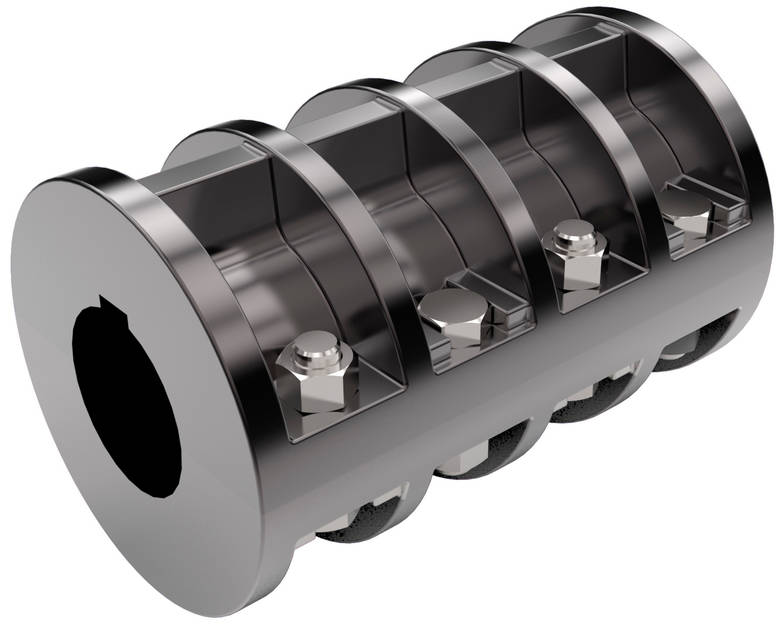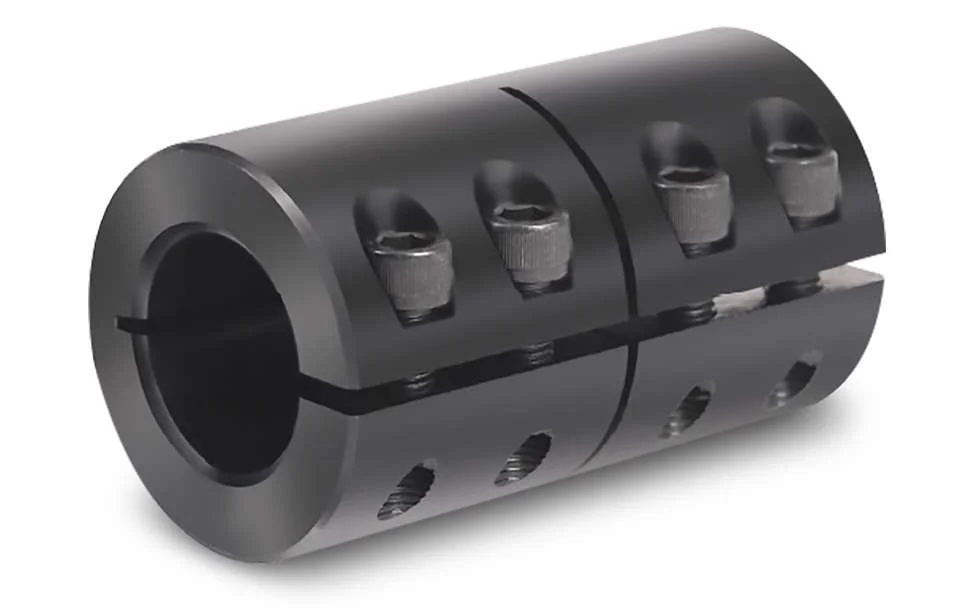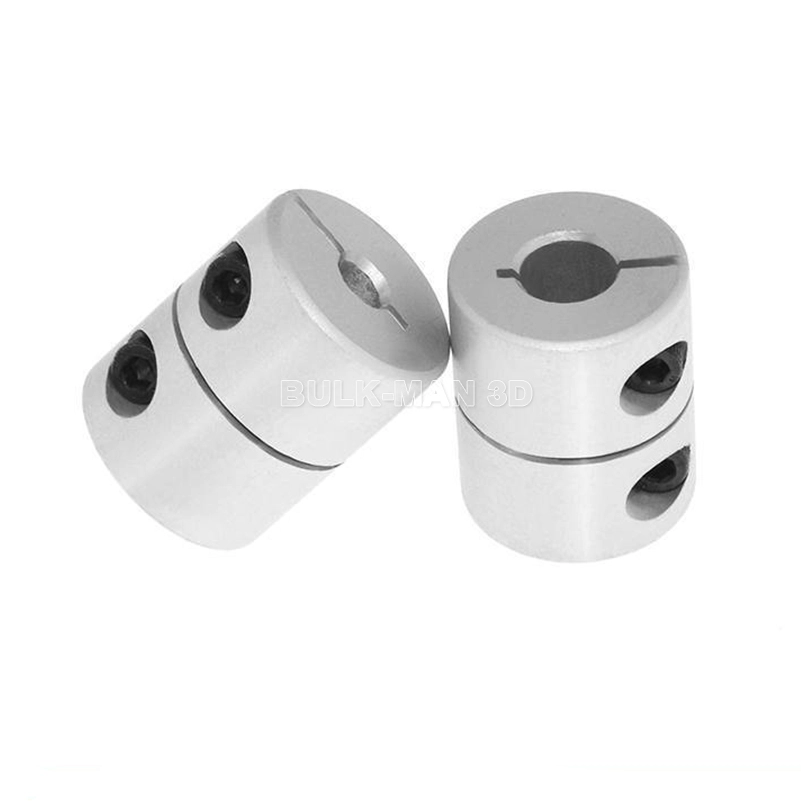Product Description
GW Type Coupling Rigid Shaft Servo Shaft Coupling GW-26X44.5
GW Type Coupling Rigid Shaft Servo Shaft Coupling GW-26X44.5
|
model parameter |
common bore diameter d1,d2 |
ΦD |
L |
LF |
LP |
d3 |
S |
tightening screw torque(N.M) |
|
GW-19X34 |
3,4,5,6,6.35,7,8 |
19 |
34 |
9.1 |
5.2 |
Φ9 |
1.8 |
1 |
|
GW-26X44.5 |
5,6,6.35,7,8,9,9.525,10,11,12,14 |
26 |
44.5 |
11.65 |
6.5 |
Φ12.5 |
2.6 |
1.5 |
|
GW-32X54 |
5,6,6.35,7,8,9,9.525,10,11,12,12.7,14,15, |
32 |
54 |
12.25 |
9.5 |
Φ15 |
3.5 |
1.5 |
|
GW-34X58 |
5,6,6.35,7,8,9,9.525,10,11,12,12.7,14,15,16 |
34 |
58 |
14.25 |
9.5 |
Φ16 |
3.5 |
2.5 |
|
GW-39X65.5 |
8,9,9.525,10,11,12,12.7,14,15,16,17,18,19 |
39 |
65.5 |
14.9 |
11.2 |
Φ19.3 |
4.5 |
2.5 |
|
GW-44X65.5 |
8,9,9.525,10,11,12,12.7,14,15,16,17,18,19,20,22,24 |
44 |
65.5 |
14.9 |
11.2 |
Φ22.5 |
4.5 |
2.5 |
|
GW-50X80 |
8,9,9.525,10,11,12,12.7,14,15,16,17,18,19,20,22,24,25 |
50 |
80 |
20.6 |
12.2 |
Φ23 |
4.8 |
7 |
|
GW-56X83 |
10,12,14,15,16,17,18,19,20,22,24,25,28,30,32 |
56 |
83 |
19.75 |
13.5 |
Φ32.5 |
5.5 |
7 |
|
GW-68X97 |
12,14,15,16,17,18,19,20,22,24,25,28,30,32,35,38 |
68 |
97 |
23.35 |
15.7 |
Φ38.3 |
6.3 |
12 |
|
GW-82X128 |
17,18,19,20,22,24,25,28,30,32,35,38,40,42 |
82 |
128 |
30 |
22 |
Φ45.5 |
8 |
20 |
/* January 22, 2571 19:08:37 */!function(){function s(e,r){var a,o={};try{e&&e.split(“,”).forEach(function(e,t){e&&(a=e.match(/(.*?):(.*)$/))&&1

Can rigid shaft couplings operate in high-temperature or corrosive environments?
Rigid shaft couplings can be designed and manufactured using materials that are suitable for high-temperature or corrosive environments. Common materials used for such applications include stainless steel, nickel alloys, and other corrosion-resistant materials. These materials can withstand elevated temperatures and resist the effects of corrosive substances. When selecting a rigid shaft coupling for high-temperature or corrosive environments, it is essential to consider factors such as the operating temperature range, the specific corrosive substances present, and the overall environmental conditions. Additionally, proper lubrication and maintenance are crucial to ensuring the longevity and optimal performance of rigid couplings in these demanding environments. It is essential to consult with coupling manufacturers or suppliers who specialize in providing solutions for high-temperature or corrosive applications. They can help identify the appropriate materials and designs that will meet the specific requirements of the intended environment.

How do rigid shaft couplings compare to flexible couplings in terms of torque transmission and misalignment handling?
Rigid shaft couplings and flexible couplings differ in their ability to handle torque transmission and misalignment. Here’s a comparison of these aspects:
- Torque Transmission: Rigid shaft couplings offer excellent torque transmission due to their solid construction. They efficiently transmit high torque loads without significant power loss. Flexible couplings, on the other hand, may have some inherent power loss due to their flexibility.
- Misalignment Handling: Flexible couplings excel in compensating for misalignment between shafts. They can accommodate angular, parallel, and axial misalignments, reducing stress on connected equipment. Rigid couplings are limited in their misalignment compensation, primarily handling minimal misalignments. Significant misalignment can lead to increased wear and premature failure.
The choice between rigid and flexible couplings depends on the specific requirements of the application. If precise torque transmission and minimal misalignment are priorities, rigid couplings may be suitable. However, if misalignment compensation and vibration dampening are crucial, flexible couplings are a better option.

What are the Materials Commonly Used to Manufacture Rigid Shaft Couplings, and How Do They Impact Performance?
Rigid shaft couplings are typically made from a variety of materials, and the choice of material can significantly impact the performance of the coupling in specific applications. Some common materials used in manufacturing rigid shaft couplings include:
- Steel: Steel is one of the most commonly used materials for rigid shaft couplings. It offers excellent strength and durability, making it suitable for high-torque and heavy-duty applications. Steel couplings can withstand significant stresses and provide reliable torque transmission.
- Stainless Steel: Stainless steel couplings offer the same benefits as regular steel couplings but with the added advantage of corrosion resistance. They are commonly used in applications where the coupling may be exposed to harsh environments or moisture.
- Aluminum: Aluminum couplings are lightweight and have good corrosion resistance. They are often used in applications where weight reduction is essential, such as in aerospace and automotive industries.
- Brass: Brass couplings are known for their excellent machinability and corrosion resistance. They are commonly used in applications where electrical conductivity is required.
- Cast Iron: Cast iron couplings are robust and offer good resistance to wear and tear. They are commonly used in industrial machinery and equipment.
The choice of material depends on various factors, including the application’s operating conditions, such as torque requirements, temperature, and environmental conditions. For example, in high-torque applications, steel or stainless steel couplings are often preferred due to their high strength. On the other hand, aluminum couplings are favored in applications where weight reduction is critical.
It is essential to consider the specific needs of the application and the coupling’s material properties to ensure optimal performance, longevity, and reliability of the rigid shaft coupling.


editor by CX 2024-04-19